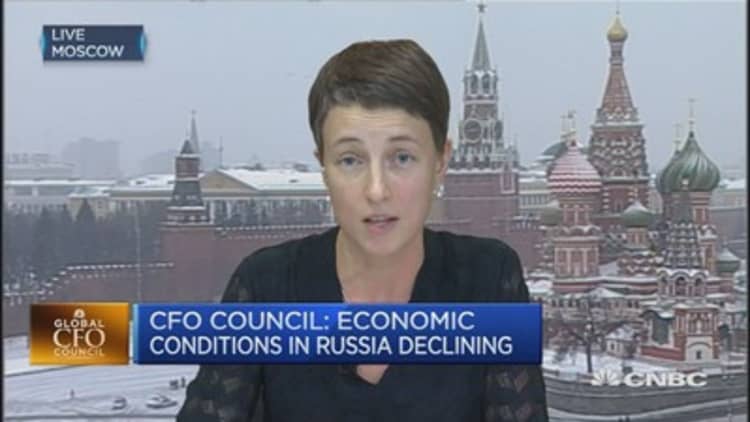After years of languishing, the U.S. economy looks poised to break out, according to Harvard economist Kenneth Rogoff.
The three-pronged catalyst of lower taxes, less regulation and more domestic spending could push gross domestic product well above the trend of the past eight years, the noted author said.
"Yes, it still could all end very badly. The world is a risky place. If global growth collapses, U.S. growth could suffer severely," Rogoff wrote this week in an analysis for the World Economic Forum. "Still, it is far more likely that after years of slow recovery, the U.S. economy might at last be ready to move significantly faster, at least for a while."
Rogoff is most well-known for "This Time Is Different," the seminal 2009 book he co-authored with Carmen Reinhart that examined the history and impact of financial crises.
Essentially, the book showed that breakdowns in financial systems exert far more economic impact than other types of recessions, and thus take longer from which to recover.

His latest missive, though, said the time for subscribing to "secular stagnation" — a term used by economist Larry Summers and others to describe long-term, low growth — is over.
Rogoff believes President-elect Donald Trump's prescriptions for growth likely will put a halt to economic stasis. The eight years under President Barack Obama have seen annual GDP gains of only about 1.8 percent, well below trend growth of around 3 percent.
"Those who are deeply wedded to the idea of 'secular stagnation' would say high growth under Trump is well-nigh impossible," Rogoff said. "But if one believes, as I do, that the slow growth of the last eight years was mainly due to the overhang of debt and fear from the 2008 crisis, then it is not so hard to believe that normalization could be much closer than we realize. After all, so far virtually every financial crisis has eventually come to an end."
What that means for the economy is increased inflation and strong GDP gains. Rogoff figures inflation to run around 3 percent or more — the U.S. Federal Reserve targets a 2 percent rate — while GDP growth should hit 4 percent, "at least temporarily."
To be sure, there are downside risks.
Multiple estimates that Trump's spending will add $5 trillion to the $19.9 trillion U.S. debt load "seem sober." But Rogoff poked Democrats who for years said it made sense to borrow money at low rates, only to contend now that the Trump plan will "pave the road to financial Armageddon."
"Their hypocrisy is breathtaking, even if they are now closer to being right," he said.
Rogoff also conceded that the Trump tax cuts will skew toward the wealthy, but they also will boost confidence. All that stands in the way of higher growth, he said, is Trump himself.
"If the new administration proves erratic and incompetent (a real possibility), dejection will quickly overwhelm confidence," he said.


